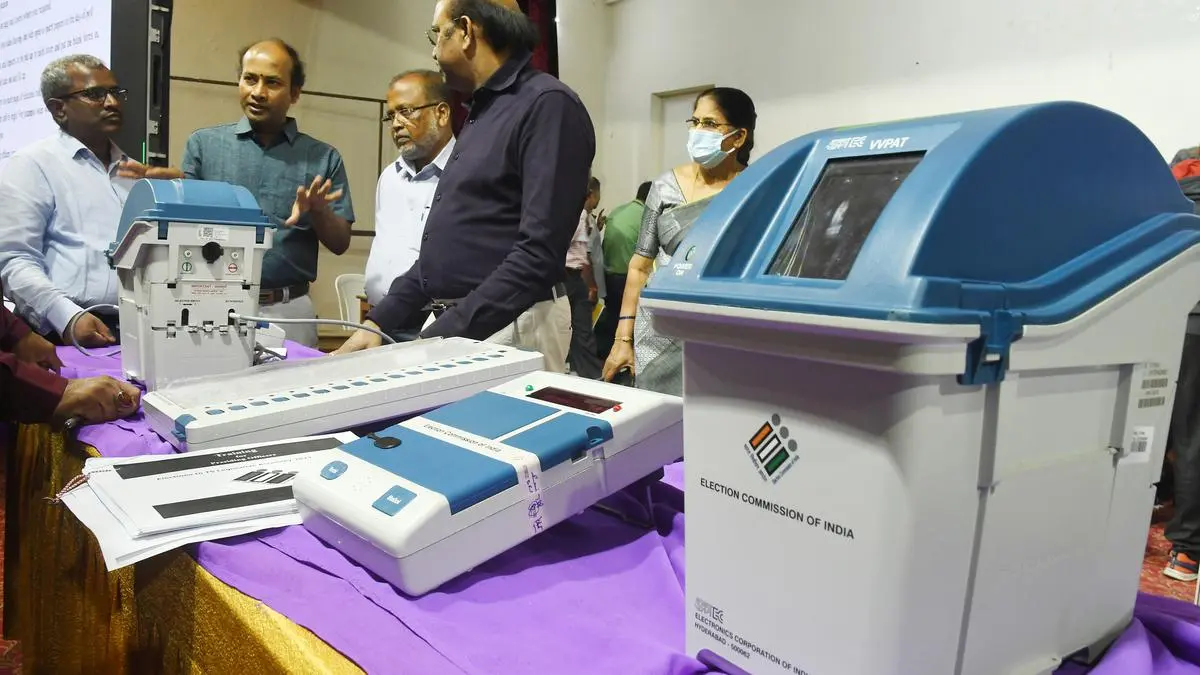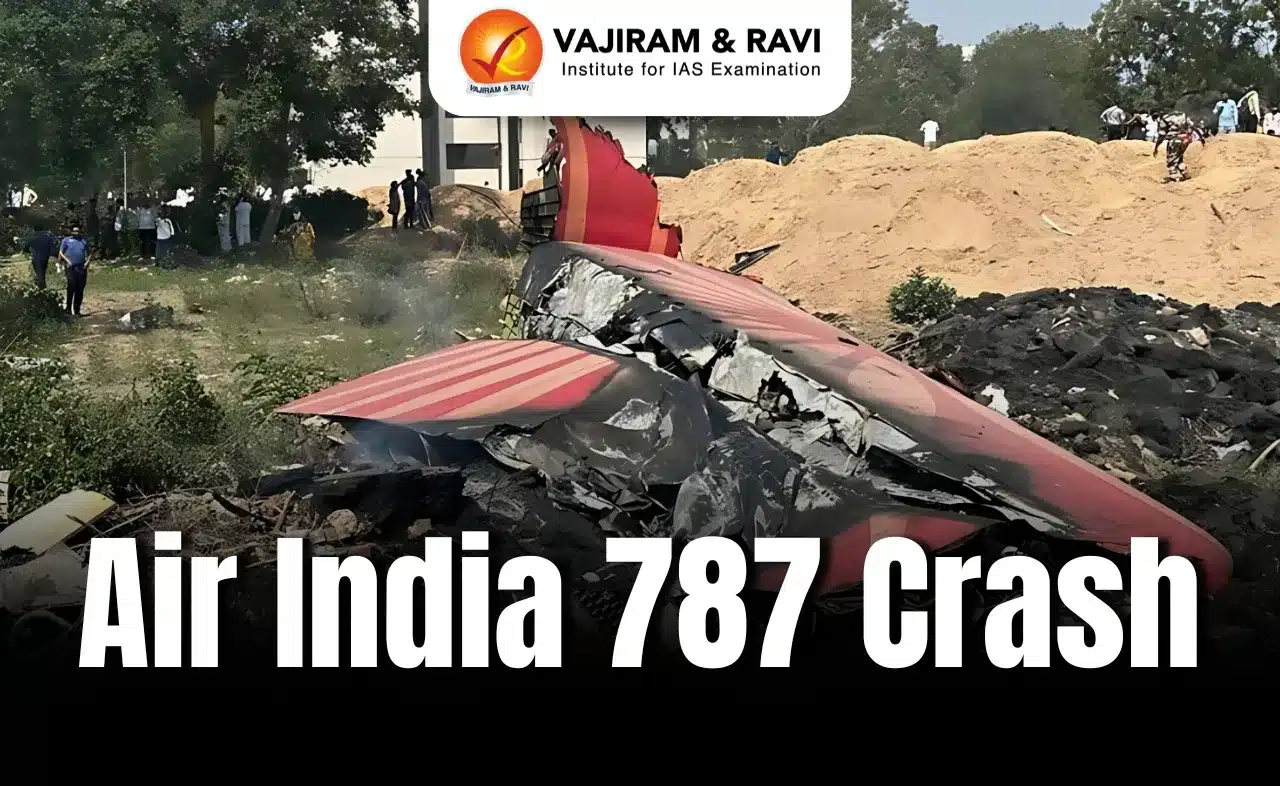What’s in today’s article?
- Why in News?
- Process of Setting up Polling Stations
- Officers at the Polling Stations
- What are Critical Polling Stations?
- Provisions for Persons with Disabilities (PwD)
Why in News?
- There are 10.5 lakh polling stations around the country where 96.8 crore voters are registered to vote in the ongoing Lok Sabha elections.
- Therefore, it is necessary to examine the procedures involved in establishing and operating these voting stations.
Process of Setting up Polling Stations:
- Legal provisions: Under Section 25 of the Representation of the People Act 1951 (RPA), the district election officer (DEO) is assigned the responsibility to set up and publish the list of polling stations in their district.
- Principles on the basis of which polling stations are set up:
- These include ensuring that
- Voters do not have to travel more than two km to cast their vote,
- A station has a minimum area of 20 sq m,
- A station serves at most 1,500 electors, and
- A village with over 300 voters is provided with a polling station.
- These include ensuring that
However, these principles are flexible.
- Locations for polling stations:
- Preferably, government or semi-government institutions are chosen to set up polling stations.
- Usually, private buildings are avoided and they can be taken with the written consent of the owner or forcefully under Section 160 of the RPA.
- The list of polling stations: The draft list is prepared with input from local political parties and citizens. After the final list is approved by the Election Commission of India’s (ECI’s), it is distributed to parties and candidates.
Officers at the Polling Stations:
- Inside the polling station:
- There is a polling party comprising a Presiding Officer and 3 Polling Officers inside a polling station on the voting day.
- The first Polling Officer verifies the elector’s identity, the second applies indelible ink on their left index finger, maintains the voters’ register and issues voter slips.
- The third Polling Officer takes back the voter slip issued by the 2nd polling officer, manages the EVM’s control unit, and ensures that an elector has been properly inked before being allowed to vote.
- There is a polling party comprising a Presiding Officer and 3 Polling Officers inside a polling station on the voting day.
- Outside the polling station:
- Sector Officers or Zonal Magistrates are appointed for around 10-12 polling stations to facilitate the link between polling staff and the Returning Officer.
- Micro Observers are deployed in vulnerable areas to report any deviations.
- Booth Level Officers (BLO) at the Voter Assistance Booths assist voters in finding their polling booth and serial numbers in the alphabetically arranged electoral roll.
What are Critical Polling Stations?
- A critical polling station includes those
- In vulnerable areas;
- In areas with abnormal law and order situations;
- With unusually high (over 90%, with over 75% votes polled in favour of one candidate), or low (under 10%) voter turnout rates;
- Where re-polling is held due to electoral offences, with instances of violence on polling day in the last five years; and
- With a disproportionate number of Absentee, Shifted and Dead (ASD) voters.
- In vulnerable areas;
- In these polling stations, the ECI takes some extra measures to ensure the security and integrity of the voting process. For example,
- Before the poll, the ECI –
- Conducts pre-poll confidence building initiatives,
- Gets regular feedback from candidates and intelligence agencies,
- Legally binds identified trouble-mongers, and
- Uses preventive detention under appropriate sections of law.
- Before the poll, the ECI –
On the day of the poll, Central Armed Police Forces (CAPF) and Micro Observers are deployed.
Provisions for Persons with Disabilities (PwD):
- There are approximately 88.4 lakh PwD registered to vote in the ongoing Lok Sabha elections.
- According to the ECI’s stringent guidelines,
- All polling stations must have a ramp, wheelchairs and designated parking spaces close to the station.
- PwDs are allowed to cast their vote without waiting in queues.
- Transport facilities are provided for voters with impaired mobility (including senior citizens).
- For the visually impaired, electronic voting machines (EVMs) and dummy ballot papers come with Braille facilities.
They can use ECI’s Saksham App to book wheelchairs, pick and drop service, get assistance at the polling booth, etc.
Q.1. Why was ‘cVIGIL’ App launched in India?
‘cVIGIL‘ stands for Vigilant Citizen and emphasises the proactive and responsible role citizens can play in the conduct of free and fair elections. It was launched by the Election Commission of India and is expected to fill in all these gaps and create a fast-track complaint reception and redressal system.
Q.2. Why was the Saksham App launched in India?
The Election Commission of India has launched Saksham App to facilitate easier voting for Persons with Disabilities and to avail facilities at Polling Stations.
Last updated on June, 2025
→ UPSC Notification 2025 was released on 22nd January 2025.
→ UPSC Prelims Result 2025 is out now for the CSE held on 25 May 2025.
→ UPSC Prelims Question Paper 2025 and Unofficial Prelims Answer Key 2025 are available now.
→ UPSC Calendar 2026 is released on 15th May, 2025.
→ The UPSC Vacancy 2025 were released 1129, out of which 979 were for UPSC CSE and remaining 150 are for UPSC IFoS.
→ UPSC Mains 2025 will be conducted on 22nd August 2025.
→ UPSC Prelims 2026 will be conducted on 24th May, 2026 & UPSC Mains 2026 will be conducted on 21st August 2026.
→ The UPSC Selection Process is of 3 stages-Prelims, Mains and Interview.
→ UPSC Result 2024 is released with latest UPSC Marksheet 2024. Check Now!
→ UPSC Toppers List 2024 is released now. Shakti Dubey is UPSC AIR 1 2024 Topper.
→ Also check Best IAS Coaching in Delhi






















